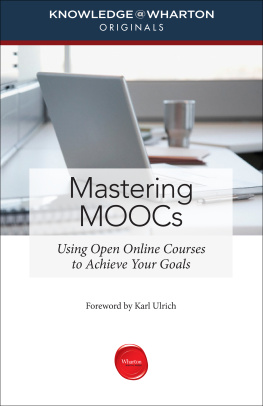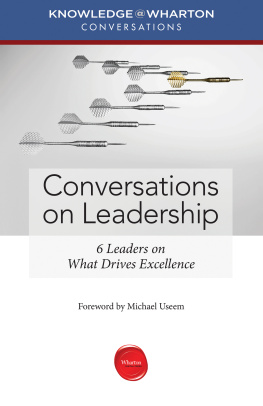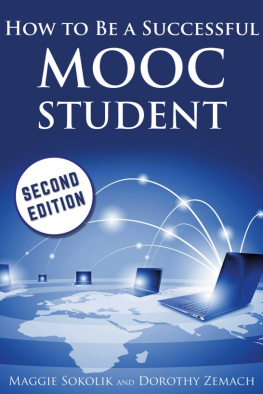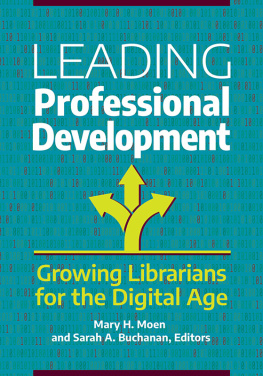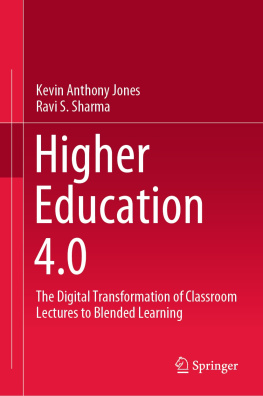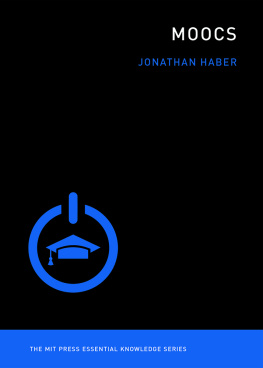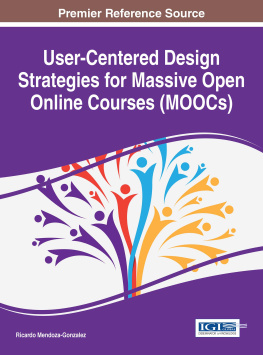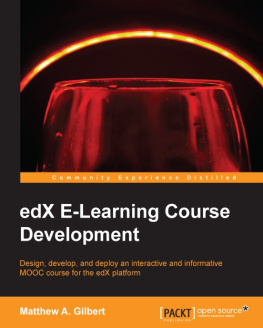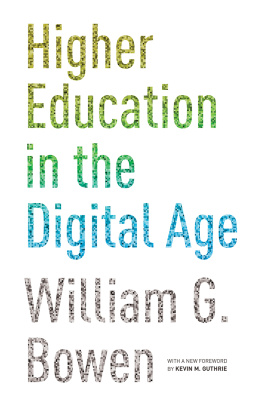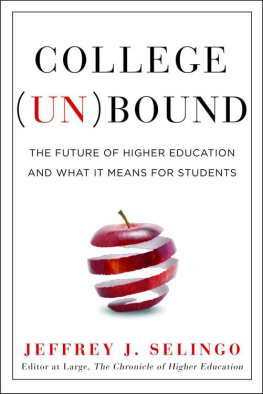Knowledge@Wharton - Mastering moocs: using open online courses to achieve your goals
Here you can read online Knowledge@Wharton - Mastering moocs: using open online courses to achieve your goals full text of the book (entire story) in english for free. Download pdf and epub, get meaning, cover and reviews about this ebook. year: 2015, publisher: Wharton Digital Press, genre: Romance novel. Description of the work, (preface) as well as reviews are available. Best literature library LitArk.com created for fans of good reading and offers a wide selection of genres:
Romance novel
Science fiction
Adventure
Detective
Science
History
Home and family
Prose
Art
Politics
Computer
Non-fiction
Religion
Business
Children
Humor
Choose a favorite category and find really read worthwhile books. Enjoy immersion in the world of imagination, feel the emotions of the characters or learn something new for yourself, make an fascinating discovery.
- Book:Mastering moocs: using open online courses to achieve your goals
- Author:
- Publisher:Wharton Digital Press
- Genre:
- Year:2015
- Rating:4 / 5
- Favourites:Add to favourites
- Your mark:
Mastering moocs: using open online courses to achieve your goals: summary, description and annotation
We offer to read an annotation, description, summary or preface (depends on what the author of the book "Mastering moocs: using open online courses to achieve your goals" wrote himself). If you haven't found the necessary information about the book — write in the comments, we will try to find it.
How business professionals are using MOOCs to further their careers and help their companies and teams succeed
Since first making headlines in 2011, hundreds of universities across the world have begun offering thousands of MOOCS, or massive open online courses, to millions of students around the world. While researchers are still looking at what this relatively new technology means for education, many business professionals are already yielding the benefits.
Mastering MOOCs: Using Open Online Courses to Achieve Your Goals offers insights into how anyone can gain the greatest personal and professional impact from a MOOC. In this original in-depth ebook, Knowledge@Wharton, The Wharton Schools online journal of business analysis, addresses:
The ROI for MOOCs: Learn how to decide if a MOOC is a good value for your time and your goals.
How a MOOC can increase your value to an employer: Find out how some have found new jobs, changed...
Knowledge@Wharton: author's other books
Who wrote Mastering moocs: using open online courses to achieve your goals? Find out the surname, the name of the author of the book and a list of all author's works by series.

